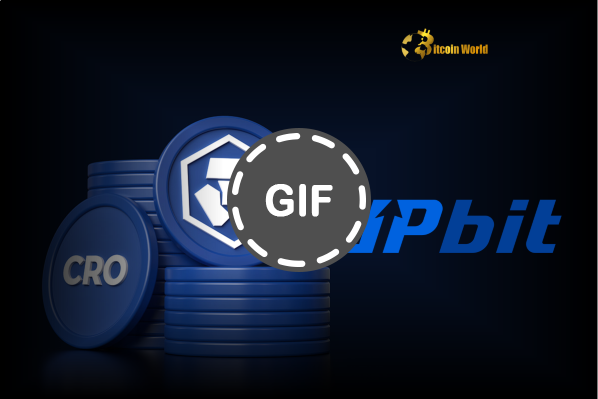BitcoinWorld

Gemini Deep Think Unleashes a Revolutionary Era in AI Reasoning
In the rapidly evolving landscape of technology, where breakthroughs in artificial intelligence are reshaping industries from finance to healthcare, Google DeepMind has just unveiled a significant leap forward: Gemini Deep Think. For those closely watching the intersection of cutting-edge AI and its potential impact on innovation, this development marks a pivotal moment. Imagine an AI that doesn’t just process information sequentially but actively explores and considers multiple ideas in parallel, much like a team of brilliant minds collaborating on a complex problem. This is precisely what Google’s latest reasoning model promises, setting a new standard for intelligent problem-solving and opening up unprecedented possibilities for creators, researchers, and strategists alike.
Gemini Deep Think: A New Paradigm in AI Reasoning
Google DeepMind’s latest offering, Gemini 2.5 Deep Think, is being hailed as its most advanced AI reasoning model to date. What makes this model stand out is its unique ability to tackle questions by simultaneously exploring and considering multiple ideas. Instead of a linear thought process, Deep Think evaluates various approaches in parallel, then synthesizes these outputs to arrive at the most optimal answer. This parallel processing capability is a game-changer for complex problem-solving. Access to this innovative AI begins this Friday for subscribers to Google’s $250-per-month Ultra subscription, marking its public debut. First showcased at Google I/O 2025, Gemini 2.5 Deep Think represents Google’s first publicly available multi-agent model, a testament to the company’s commitment to pushing the boundaries of AI.
How Does Multi-Agent AI Unleash New Potential?
The core innovation behind Gemini Deep Think lies in its multi-agent architecture. These sophisticated systems function by spawning multiple AI agents, each tasked with tackling a question or problem concurrently. This parallel processing approach, while demanding significantly more computational resources compared to a single-agent model, consistently yields superior results. The effectiveness of this methodology was strikingly demonstrated when a variation of Gemini 2.5 Deep Think secured a gold medal at this year’s International Math Olympiad (IMO). Alongside the consumer-facing Deep Think, Google is also releasing the specific IMO model to a select group of mathematicians and academics. This specialized AI reasoning model, unlike typical consumer AI, requires hours, not seconds or minutes, to reason through complex problems, underscoring its depth and potential for enhancing high-level research. Google’s goal is to gather feedback on how to refine these multi-agent systems for broader academic applications, fostering a collaborative approach to AI development.
Google DeepMind’s Advanced AI Benchmarks and Capabilities
When it comes to performance, Google DeepMind is not shy about its new model’s prowess. Gemini 2.5 Deep Think achieves state-of-the-art performance on ‘Humanity’s Last Exam’ (HLE), a challenging test designed to measure an AI’s ability to answer thousands of crowdsourced questions across diverse fields like math, humanities, and science. Here’s how it stacks up against competitors on HLE (without tools):
| AI Model | HLE Score (without tools) |
|---|---|
| Gemini 2.5 Deep Think | 34.8% |
| xAI’s Grok 4 | 25.4% |
| OpenAI’s o3 | 20.3% |
Furthermore, Gemini 2.5 Deep Think also outperforms rival models from OpenAI, xAI, and Anthropic on LiveCodeBench6, a rigorous test for competitive coding tasks. Its score of 87.6% surpasses Grok 4’s 79% and OpenAI’s o3’s 72%, showcasing its superior capability in complex coding challenges. Beyond benchmarks, Gemini 2.5 Deep Think seamlessly integrates with tools like code execution and Google Search, enabling it to produce much longer and more detailed responses than traditional AI models. Google’s internal testing showed it excelled at producing more detailed and aesthetically pleasing web development tasks, hinting at its broad applicability in creative and technical fields. The company believes this model could significantly aid researchers, potentially accelerating the path to new discoveries.
The Strategic Implications of Advanced AI Costs
The emergence of multi-agent AI systems, while promising unprecedented capabilities, also highlights a significant challenge: their substantial computational cost. These systems are even more expensive to operate than traditional AI models, which means leading tech companies are likely to keep them behind their most expensive subscription tiers. This trend is already evident with xAI’s Grok 4 Heavy and now Google’s Gemini 2.5 Deep Think, both requiring premium subscriptions for access. This strategic decision reflects the immense resources required to run such powerful AI. Interestingly, several prominent AI labs appear to be converging on this multi-agent approach. Elon Musk’s xAI recently launched Grok 4 Heavy, another multi-agent system boasting industry-leading performance. Similarly, OpenAI’s unreleased model that also won a gold medal at the IMO was confirmed to be a multi-agent system. Even Anthropic’s Research agent, known for generating thorough research briefs, leverages a multi-agent framework. In the coming weeks, Google plans to extend access to Gemini 2.5 Deep Think via the Gemini API to a select group of testers. This move aims to understand how developers and enterprises might leverage its multi-agent system for various applications, signaling a broader rollout for specialized use cases.
Google’s introduction of Gemini Deep Think marks a profound advancement in the field of artificial intelligence. By harnessing the power of multi-agent systems and parallel reasoning, Google DeepMind is not just offering a more intelligent AI; it’s providing a tool capable of tackling problems that demand creativity, strategic planning, and iterative improvement. While the high computational costs may initially limit access to premium subscribers, the potential for accelerating research, enhancing problem-solving, and pushing the boundaries of what advanced AI can achieve is immense. As multi-agent AI becomes more prevalent, we can anticipate a future where complex challenges across science, technology, and beyond are approached with unprecedented efficiency and insight, truly revolutionizing how we interact with and benefit from artificial intelligence.
To learn more about the latest AI model trends, explore our article on key developments shaping AI models’ future features.
This post Gemini Deep Think Unleashes a Revolutionary Era in AI Reasoning first appeared on BitcoinWorld and is written by Editorial Team





